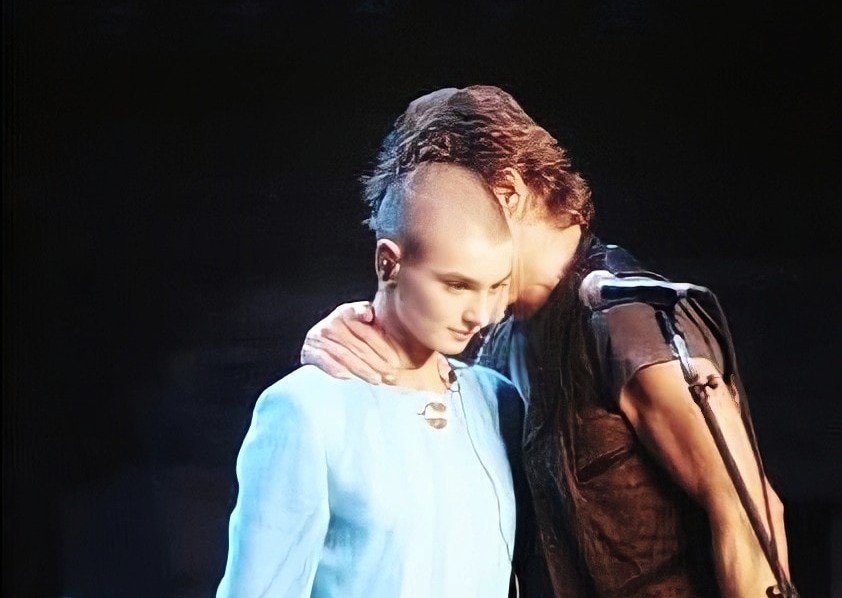Kris Kristofferson, the legendary American singer-songwriter and actor, passed away over the weekend, leaving behind a legacy of extraordinary creativity and a life of unyielding principle. Known for hits like “Me and Bobby McGee” and his work in films such as A Star is Born, Kristofferson’s talents and convictions stretched far beyond the entertainment industry.
One particularly poignant moment in Kristofferson’s life was his public defense of Irish singer Sinéad O’Connor at Madison Square Garden in 1992. O’Connor, known for her fierce activism, had torn up a picture of the Pope on Saturday Night Live, condemning the Catholic Church’s role in covering up rampant child sexual abuse. At the time, the full extent of these atrocities had not yet reached global awareness, and O’Connor’s act was met with harsh criticism. The Irish state, among others, attempted to suppress the truth, allowing the abuse to continue under the surface.
When O’Connor appeared on stage at a Bob Dylan tribute concert in New York, she was met with a storm of boos from the crowd. Kristofferson, standing beside her, offered comfort and defiance in equal measure, telling O’Connor, “Don’t let the bastards get you down.” His solidarity was emblematic of his deep commitment to standing by those fighting for justice, no matter how unpopular their cause at the time.
Kristofferson’s activism was not limited to high-profile moments. In addition to his support for O’Connor, he risked much of his career for his vocal advocacy of human rights. He worked closely with actress Vanessa Redgrave in speaking out for Palestinian children, a stance that was far from fashionable in Hollywood. Kristofferson once said, “If you support human rights, you gotta support them everywhere,” a statement that embodied his dedication to justice without compromise. For this, he lost a significant amount of work, particularly in Los Angeles, where his outspoken political views were met with resistance from the entertainment industry.
Kris Kristofferson lived a life marked by artistic brilliance, personal courage, and a relentless commitment to human rights. His passing marks the end of an era, but his legacy lives on, not just in the songs and films he created, but in the lives of those he stood up for when no one else would. His support of the marginalised, including Palestinian children and those silenced by systemic abuse, remains a powerful reminder of the impact two people can have by choosing principles over popularity.







